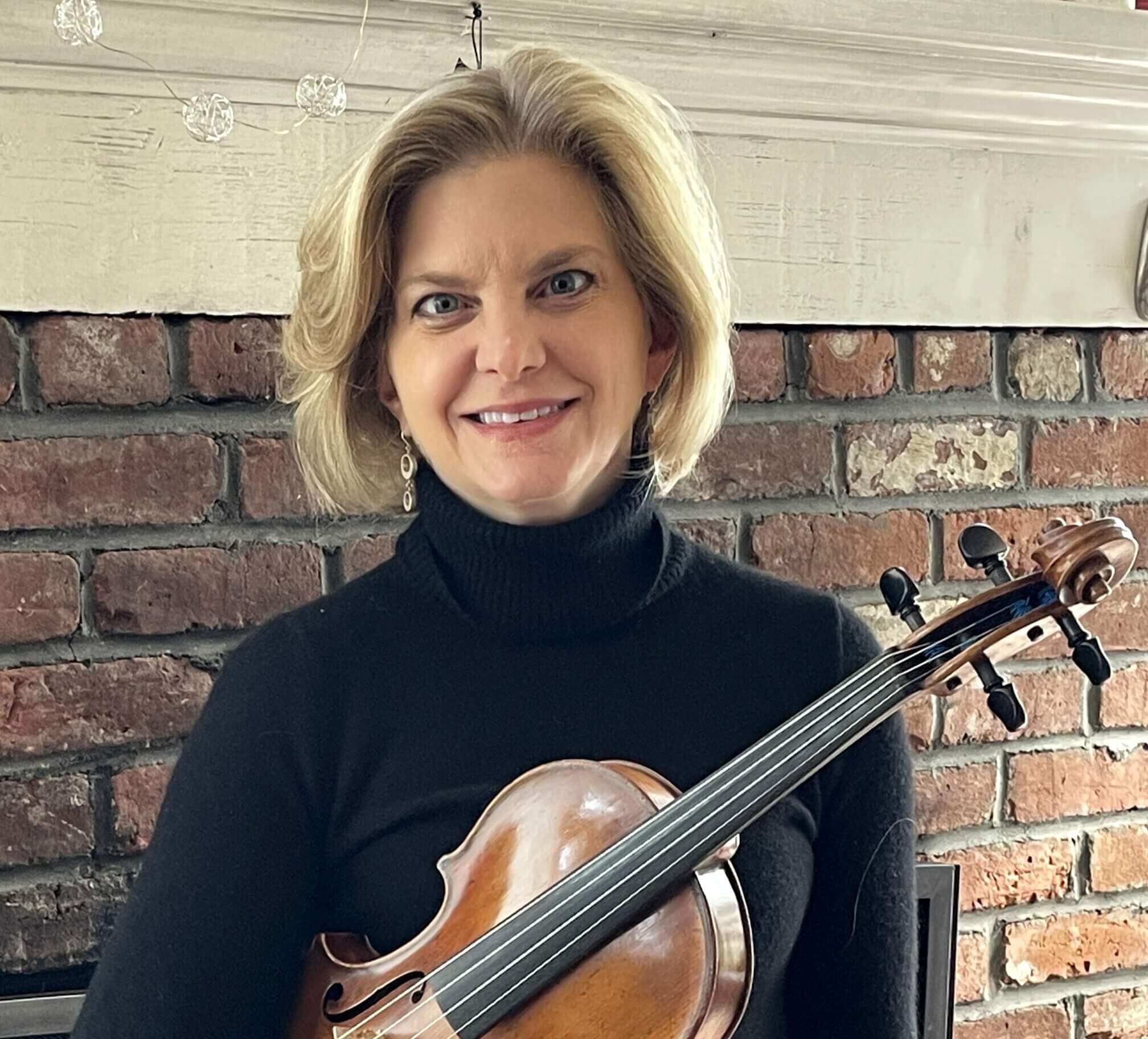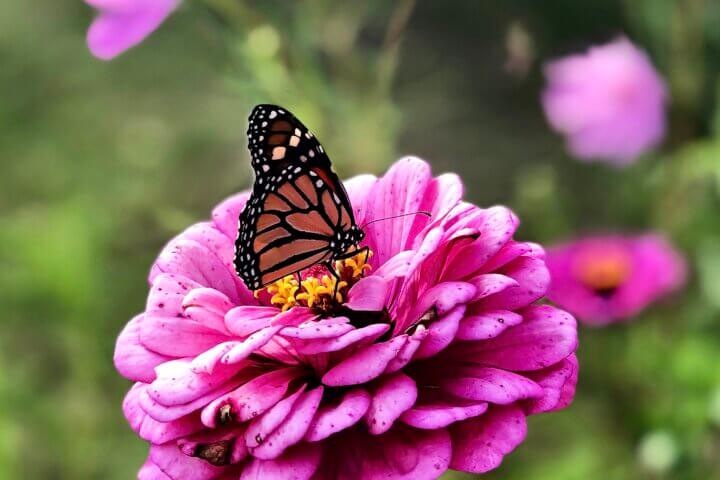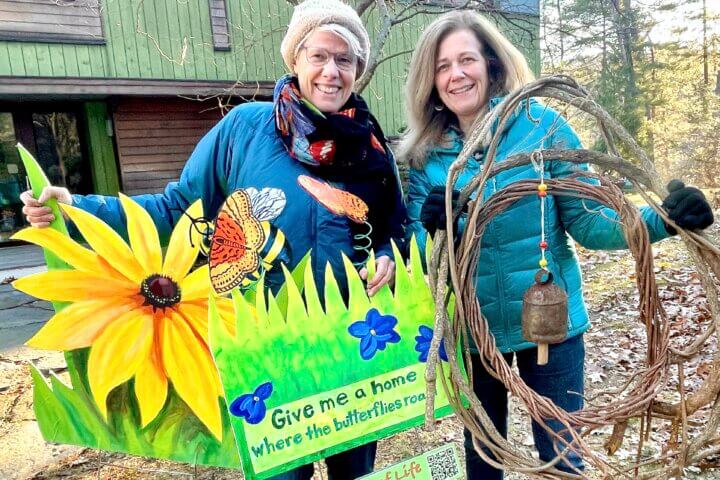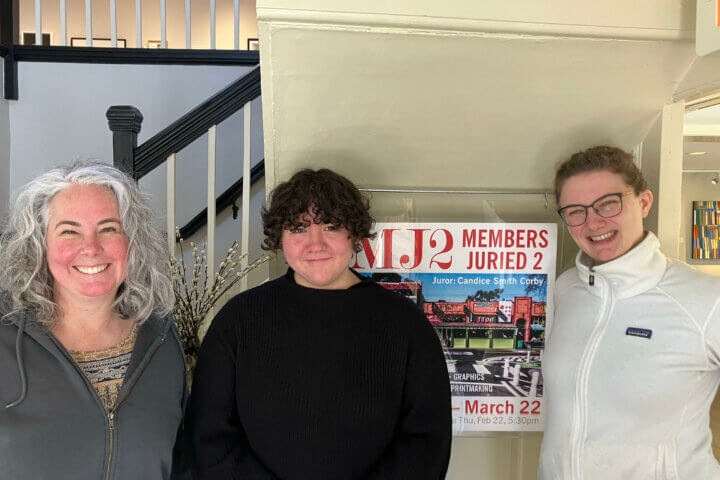All string instruments have the ability to elicit emotion, but among them the violin is arguably the most powerful. The instrument produces sounds that closely imitate the human voice, mournful or joyous. They can move not only the listener, but also the artist.
Wendy Putnam, founder and executive director of the Concord Chamber Music Society, can attest to this. Several weeks after the death of her first husband, she was performing Olivier Messiaen’s “Quartet for the End of Time.” In the last movement, for solo violin and piano, the music slowly rises to reflect man’s ascension to paradise.
“It was such an ethereal sound,” Putnam said, recalling that her eyes filled with tears and she tried not to weep until she was offstage. “Music allows us to process our complex emotions. So few things do that for people.”
A violinist with the Boston Symphony Orchestra, she founded the Society in 2000. Putnam reached out to friends and organized a meeting to discuss the possibility. A benefit raised seed money for the group, and the Society began hosting concerts at which members and guest artists played in various town venues. They landed at Concord Academy a year or two later and mostly perform there, four to six times a year.
The next and final season performance will be on March 12 and will feature the Pacifica Quartet. The Society’s Jan. 8 concert delighted an audience and drew multiple standing ovations.
Sitting in her hillside Concord home while tiger-striped cat siblings Leo and Luna vied for our attention, Putnam chronicled her path to the area and to the group in which she has invested the last two decades. Her husband, Mark, is a biotech scientist, and they share teenage daughters Daya and Elizabeth.
Putnam was born in Wisconsin to two music teachers, and it was “taken for granted” that she would play an instrument. She began studying the violin at 3 and “took to it right away,” though she didn’t love to practice and was easily frustrated when she wasn’t making faster progress. Learning the violin is “hard on the ears,” Putnam noted. Her early efforts produced “a lot of scratching and screeching. It was horrible.”
But she persevered, making her first professional appearance at 9 with the Green Bay Symphony, as a soloist. At 16 she enrolled at Louisiana State University, where she earned bachelor and master of music degrees. At barely 21, she was appointed concertmaster of the New Orleans Symphony, now the Louisiana Philharmonic Orchestra, and received accolades for her performances. Putnam went on to earn fellowships to some of the world’s most prestigious music festivals.
She has been with the BSO since 1997, when she auditioned for and was hired by Seiji Ozawa. The process was grueling, Putnam said, drawing some 300 applicants and requiring nine auditions. She spends the summer at Tanglewood with the BSO, calling the experience “totally immersive and a synthesis of nature and music.”
When Putnam joined the orchestra she was one of fewer than 20 women in the orchestra. That number has more than doubled. “Diversity is always an issue in the world of classical music,” she said.
Community and educational outreach is a central tenet of the Society’s mission. Putnam’s goal has always been to make chamber music more accessible to a wide audience and to make performances as interactive as possible. At the group’s concerts, performers sometimes speak from the stage.
Early on, Putnam had “moments of questioning” whether she wanted to make music a career, “concerned it would be restrictive.” But it continues to be her passion. Playing the violin, she said, “is meditative. You allow your unconscious to surface, enabling you to get out of your own way.”
Putnam practices a few hours a day and performs regularly, though she had to put down the instrument for a while last year while she healed from tendon surgery in her left hand, an occupational hazard for string players.
Meanwhile, she works hard to make the Society “as sustainable as possible,” adding that her challenges are “How can we meet audiences where they are and how can we best deliver our product?” Funding for the Society comes primarily from ticket sales, but foundations, corporations, and individuals provide assistance. “Concord has been very supportive,” she said.
To become more effective in her role, she completed the Program for Leadership Development at Harvard Business School in 2021.
“In the best of worlds, I’d like to think of the violin as an extension of my voice,” Putnam said. “When I’m playing I can feel the vibration in my collarbone and jaw. It’s a very virtuosic instrument. And an entire experience.”





